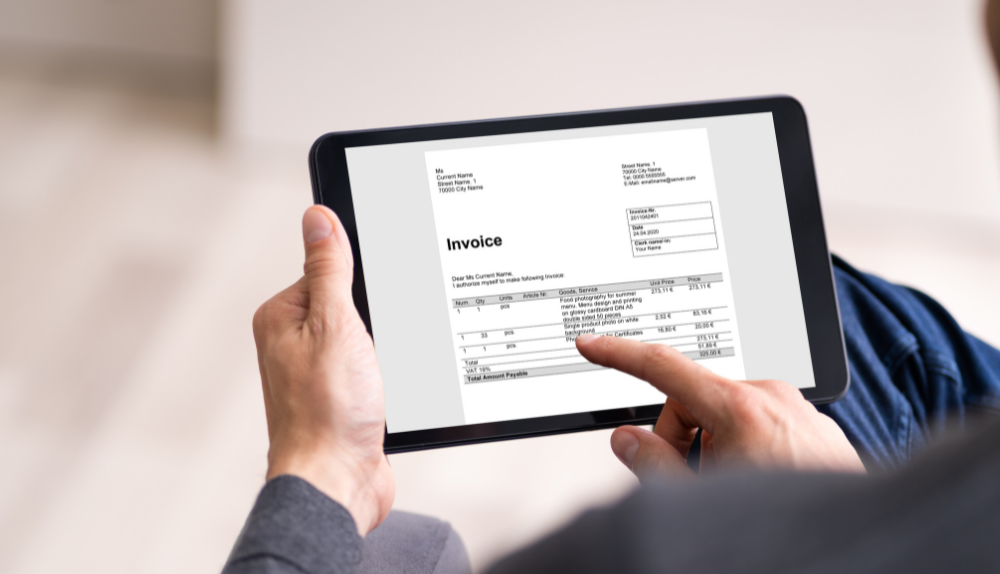
By max July 5, 2023
Maintaining a cash flow can seem pretty challenging at times, but it’s the most crucial aspect of running a business successfully. A negative cash flow can affect the business’s ability to expand and grow its operations outside the nation’s boundaries. For some businesses, the condition gets so challenging that they get on the verge of shutting the business down for good. There are many ways to get your cash flow back on track. You can consider bank financing or use credit cards to meet the working capital requirements.
But, if you don’t want to borrow, there’s an alternative method you can try. Invoice factoring has been gaining immense popularity lately and is considered one of the effective ways to get paid for unpaid invoices immediately. Instead of having to ask your customers to clear your invoice, you can sell these unpaid invoices to a third party, the factoring company, and get paid immediately. The factoring company will deduct a small percentage of its commission from the original amount. They pay an upfront amount in cash and the balance once they recover the money from your customers.
For small and medium-sized companies, invoice factoring gives faster and smoother access to cash than other financing options. Besides, the business’ credit history doesn’t matter. Keep reading to learn more about invoice factoring, its importance, and when it makes sense.
What is Invoice Factoring?

Invoice factoring refers to the process of collecting the amount a business is owed on its unpaid invoices from a factor. Basically, the business sells its unpaid invoices to the factoring company, which clears 90% of the invoice within a few days. This helps businesses meet their expenses and work on their future goals instead of having to wait for 2-3 months to receive the invoice amount from their customers.
Since they are getting the money early, they will receive lesser than the actual dues. A portion of the income will go to the factoring company, as they don’t just pay you the unpaid invoice amount early, but they are also supposed to recover the money from the customers. As mentioned previously, the factor pays an upfront amount from their pocket to the merchant. Once they collect the full invoice amount from the customer, they pay the balance to the merchant, deducting a small percentage of the total as their revenue.
How is Invoice Factoring Different from Invoice Financing?

Invoice factoring and invoice financing are similar concepts and the terms are also often used interchangeably, but they have certain differences. For instance, invoice factoring involves selling the invoice to the factoring company. The factor will be responsible for collecting the unpaid invoice amount from your customers.
Invoice financing, on the other hand, involves using unpaid invoices as collateral to borrow money from a financial institution or a private lender. You will be responsible for collecting the dues from the customers and paying them back to the lender. However, since the work involved in invoice financing is minimal, they charge you a comparatively lower fee than the factoring company.
How Does Invoice Factoring Work?

A business creates an invoice for the goods or services delivered and forwards it to their clients. The invoice has the date and details regarding when the amount needs to be paid to the company. usually, customers pay the invoice amount 30-60 days (or longer) after the purchase. The customer then pays the invoice within the given timeframe.
While that may work for most businesses, startups, and small-scale companies that need good cashflow to meet the working capital requirements and other expenses might find the typical invoice system ineffective. So, they often consider invoice factoring, in which, they sell the invoices to a third party at a discount and get the cash immediately. The factor can negotiate the amount they are willing to pay the company for the unpaid invoices. They also negotiate the payment terms, i.e. how much they will pay upfront and when they will pay the balance.
Before you consider invoice factoring, know that not every invoice is good for factoring and the factoring company might not accept your invoice if it is already past the due date or if the payment condition exceeds 3 months. Let’s understand it with an example.
Suppose you get an order worth $30,000 from a client. You complete the order and dispatch it in 4 weeks and create an invoice with a term of 60 days. While you finished a big order, it left you short on cash because of the working capital and raw material. So, you decide to sell the invoice to a factoring company at a 3% discount. You get $20,000 upfront and the remaining $29,100 when the factor collects the money from your customers. They keep 3% of the total, i.e. $900 as the fee.
Why Invoice Factoring is Important?
Invoice factoring makes sense for B2B businesses, especially startups and small-scale companies with slow-paying customers. Usually, businesses give a deadline to the customers for clearing the invoice. And it can be as long as 90 days. The biggest problem here is that even an invoice with a 30-day payment term can negatively affect the cash flow of the business.
This can create obstacles for businesses that want to leverage growth opportunities but couldn’t do that because of the lack of enough cash. You can apply for a bank loan, but not every business has a credit history that qualifies for the loan at a reasonable interest rate.
The biggest benefit of factoring is that the business’ credit history doesn’t matter as much as the customer’s credit score since they will be the ones paying the dues. A business may also want to sell invoices to the factoring company to avoid the burden of calling each customer to recover the dues.
Let’s check out some other advantages of invoice factoring.
- Quick Cash Access: With invoice factoring, you can get a big portion of the cash immediately, sometimes within 24 hours. This allows you to cover the working capital and other small expenses without borrowing a loan.
- Reduced Burden: The time spent chasing delayed payments or calling customers repeatedly to clear the dues is the time not spent on nurturing new customers or focusing on other core business activities. Instead of engaging your account department in collecting invoices, you can sell the invoices to a third party that will handle the burden of getting the money back from your customers.
- Easy Approval: The approval process for a conventional bank loan or lines of credit is pretty tedious and time-consuming. The bank will check your credit history and other factors before granting you the requested loan amount. The process is much easier and faster if you request the amount from the factoring company. They will approve your application easily and will even transfer the cash amount within 24 hours. The best part is the factor can sometimes pay you more than you’d get from a bank or a private moneylender.
- No Credit History Needed: Another perk of invoice factoring is that the factor doesn’t require your credit history, making it an excellent choice for startups without any credit record. Since your customers will be the ones paying the due amounts, the factoring company will be interested more in the customers’ credit history than the business.
- Give Your Business More Time: As a merchant, you should dedicate more time to acquiring new customers or building marketing campaigns that help retain your existing customers, instead of chasing the due payments. Invoice factoring helps you achieve that. It’s better to leave the hectic task of recovering money to a third party while you and your team focus more on other core business operations.
Are There Any Downsides?
Invoice factoring is beneficial for businesses that can’t meet their working capital requirements and other small expenses, but it comes with many downsides. For example, the factoring company charges a fixed fee, which is a small percentage of your invoices.
This can range anywhere between 3% and 10% or higher depending on the factor you choose. Besides that, the approval process is not as easy as it seems. The factoring company doesn’t approve a single invoice or invoices that have a long payment term and due dates that have already passed.
Another risk with invoice factoring is that the seller has to return the money paid by the factor in case the customer doesn’t clear their invoice. The only exception is when the non-recourse clause is signed. Sadly, most factors won’t sign such a clause and if they do, chances are they will charge a very high fee.
Conclusion
Cash flow issues are one of the biggest constraints for a business. Invoice factoring is an effective way to address the problem, as long as it doesn’t cost your business a lot in the long run. It’s advisable to weigh the pros and cons of invoice factoring to determine whether it’s the right option. It makes sense for small businesses that need cash urgently to meet their expenses.
